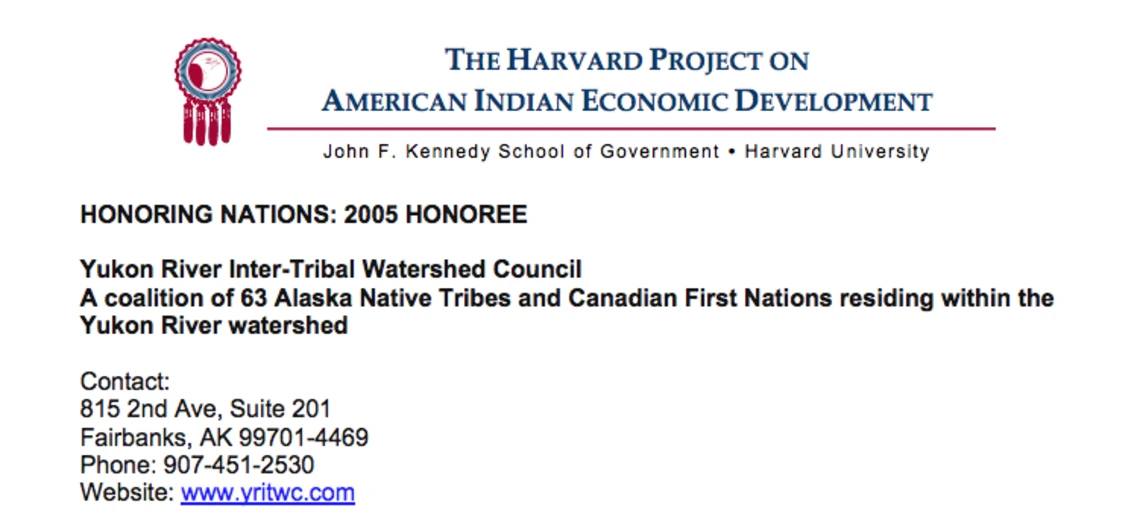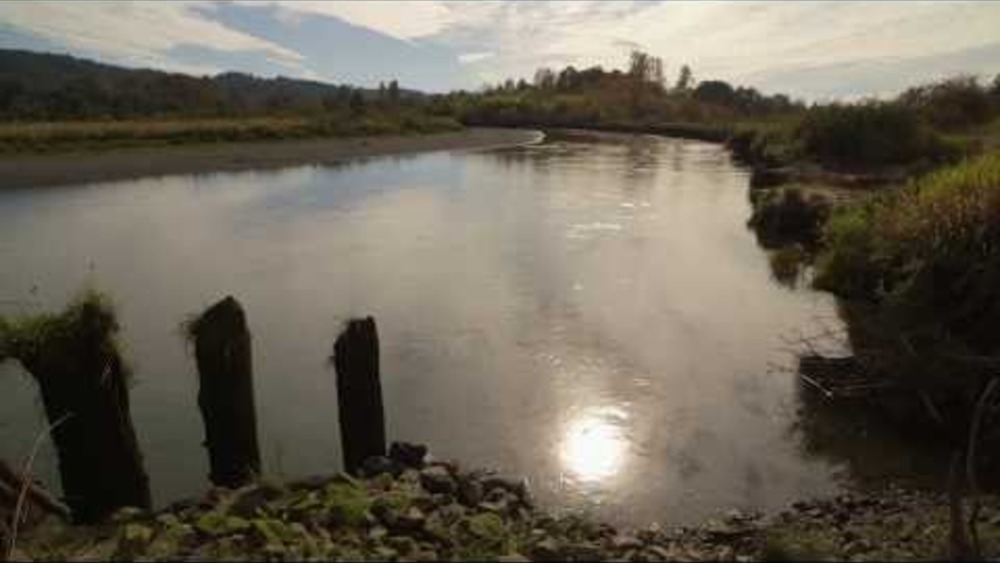The Yukon River runs for 2,300 miles across the northwestern corner of North America. Many generations of Native people have drawn on its waters for food, drink, and other necessities. Recent development and changes in land use have affected the quality of Yukon River water. In 1997, chiefs and elders of peoples who live along the river joined together in an effort to "once again drink clean water directly from the Yukon River as our ancestors did for thousands of years before us." Today, the Yukon River Inter-Tribal Watershed Council represents 60 Native nations in Alaska and Canada, monitors thousands of miles of river and millions of acres of land, works to increase water quality and environmental integrity within a massive ecosystem, and offers a remarkable model of partnership among diverse peoples determined to preserve their lands and their ways of life.
Additional Information
"Yukon River Inter-Tribal Watershed Council." Honoring Nations: 2005 Honoree. Harvard Project on American Indian Economic Development, John F. Kennedy School of Government, Harvard University. Cambridge, Massachusetts. 2006. Report.



